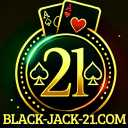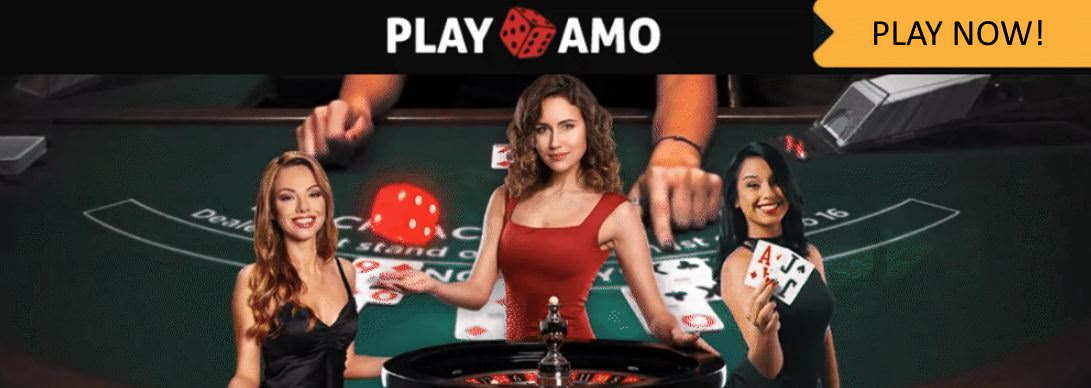Du bist hier, weil du dich gefragt hast „Wie spiele ich blackjack?“
I'm gonna give it to you right here on this page like this. quick, simply and good erklären wie du willst!
Where do we play blackjack online?
The best Experience at Black Jack we have in the Playamo Live Casino made. In my opinion, that's where it's at, BEST SELECTION at tables with live dealers and you can train very well for the real casino! Compared to other online Casinos the winnings at Playamo are really paid out and therefore I would recommend the Playamo online casino definitely recommend!
The Playamo Casino has many live tables for blackjack and a quick Payout from profits.

HOW TO PLAY BLACKJACK!
- Click on FAST, um die Black-Jack-Erklärung für Leute mit wenig Zeit zu erhalten.
- Click on SIMPLE, um die Black-Jack-Erklärung für Anfänger zu erhalten.
- Click on SUCCESSFUL, um die ausführliche Black-Jack-Erklärung von Profis zu erhalten.
LEARN TO PLAY BLACKJACK FAST IN 13 STEPS!

Hier bist du richtig, wenn du wenig Zeit hast und erstmal einen schnellen Überblick über Black Jack haben willst. Ich nerve dich hier nicht mit Regeln oder Strategien. Hier gehts um den schnellsten Weg zum Play Black Jack! Auf die Plätze, fertig, los!
- Sit at the table.
- Wait until the dealer asks you to place a bet
- Put your bill on the table
- The dealer changes the bill into chips.
- Setze einen Chip in das kartenförmige Rechteck vor dir.
- You get two Cards handed out.
- Decide between stand (done) and hit (take another card).
- Versuche so nah wie möglich an 21 approach.
- Pass aber auf, dass du nicht mehr als 21 bekommst, denn damit verlierst du. Das heißt „bust“ oder „überkaufen“.
- If you want more Points hast als der Dealer oder dieser sich überkauft, gewinnst du.
- Der Dealer gibt dir deinen Gewinn in Chips in der Höhe deines Use.
- If the dealer has more points than you, he takes your bet from your box.
- The dealer collects the cards and waits until everyone has placed their bets.
PLAY BLACKJACK EASY
Ich bin ein Fan von einfachen Erklärungen! Als ich angefangen habe mit Black Jack musste ich mir alle Informationen aus englischen Büchern zusammen suchen. Dabei ist mir schon früh die Abkürzung K.I.S.S. hängen geblieben: Keep it stupid simple! Also halte es so einfach wie möglich!
Here you will find a Abkürzung mit vier einfachen Faustregeln...but you've already done Odds you can improve.
The question is always: Should I take another card or stand still?
Here you can join the Dealer's card (Up-Card) orient.
7 ist doch eine Glückszahl, oder?
- DU hast Glück, wenn der Dealer less than 7 has! Because then you can already stop at 12.
- If the dealer 7 or more you're going to have to keep calling for cards until you get at least 17 have.
- Feel free to ante up... doubleif you have a 10 or 11 have. Außer the Dealer also has 10 or an ace.
- For couples share you ALWAYS Aces and eights. But never Pairs of 4, 5 and 10.
With these simple but effective TIpps hast du als Anfänger den Weg zu den fortgeschrittenen Spielern gemacht. Denn viele kennen diese Tipps nicht oder machen es falsch.

Du wirst damit keinesfalls immer gewinnen, aber du wirst auf lange Sicht besser abschneiden als mit zufälligen Aktionen.
HOW TO PLAY BLACKJACK SUCCESSFULLY!
Now you've seen two quick and easy ways to play blackjack.
Wenn dir das zu wenig war, dann erkläre ich dir hier gerne länger und ausführlich, wie du erfolgreich Black Jack spielen kannst.
Ich hab mich noch gar nicht vorgestellt! Wie unhöflich von mir!
Ich bin Jack Vegas. Wie der Name schon vermuten lässt, komme ich aus den USA. Eines der besten Länder weltweit, wenn es um Black Jack geht. Das sage ich ganz unpatriotisch!
Ich habe Germanistik in München studiert und meine Familie hat deutsche Einflüsse. Deswegen würde ich mein deutsch als relativ gut bezeichnen.
Zum Black Jack kam ich während des Studiums. Damals war Online-Poker die Freizeitbeschäftigung Nummer 1! Mir wurde das nach einer gewissen Zeit zu langweilig.
During a vacation in Las Vegas, I sat down to pass the time at a Black Jack Table. Ich kannte das Spiel aus Filmen und TV-Serien und dachte, dass man möglichst immer 21 bekommen muss. Ein naiver Irrglaube, dem viele Anfänger zum Opfer fallen – und Geld verlieren.
I was immediately begeistert von diesem geselligen Spiel. Am Tisch saßen Menschen aus der ganzen Welt und aus verschiedenen Berufen und Schichten. Der arme Spielsüchtige Alkoholiker ebenso wie ein Arzt oder ein reicher Geschäftsmann. Mitten drin ich – auf Augenhöhe.
Das gefiel mir sehr! Hier spielt es keine Rolle, aus welchen armen Verhältnissen du kommst. Es zählt, wie du spielst und wie kommunikativ du bist. Man freut sich zusammen, wenn man gewinnt. Genau das Gegenteil von Poker.
Leider war ich schnell mein geringes Studenten-Budget los und musste den restlichen Abend zu schauen. Immerhin stieg die Stimmung dank Freigetränken weiter.
Mit ein paar Leuten bin ich nach einer Black Jack Session noch um die Häuser gezogen. Ich erinnere mich besonders gerne an zwei amerikanische Soldaten, die ich auf der Karibik-Insel Curacao kennengelernt habe. Außerdem einen schüchternen aber reichen kanadischen Geschäftsmann, den ich immer wieder mit verrückten Sprüchen zum lachen brachte oder einen Argentinier, der in mir einen goldscheißenden Esel sah und mich durch alle Casinos einer argentischen Stadt zog.
These are people I've encountered over the course of my blackjack career and part of memorably successful evenings.
Ich werde dir aber natürlich unabhängig davon die wichtigsten Schritte zum Erfolg hier zeigen.
1. realism
Das wichtigste ist immer ein gesunder Menschenverstand. Damit meine ich eine breite Masse zwischen mathematischer Hochbegabung und Bauernschläue. Ich hatte in der Schule extrem mit Mathe zu kämpfen und bin deswegen auch mal sitzen geblieben. Aber ich kann relativ gut kopfrechnen. Das reicht normal schon um beim Black Jack erfolgreich zu sein.
However, it is also important to accept and ideally understand the principle of mathematical probabilities. There are two extremes here. And extremes are never good, as we all know.
Die einen sind extrem skeptisch und halten Black Jack für ein Glücksspiel. Die liegen damit sogar sehr nahe bei der Wahrheit. Vor allem, weil es das wesentlich schlimmere andere Extrem der Glücksritter gibt. Diese Zocker leben in ihrer eigenen Fantasie-Welt und erzählen entweder Lügengeschichten von Gewinnen um ihr trauriges Leben interessant zu machen oder denken wirklich, dass sie „gut“ sind, weil sie mit sehr viel Risiko und Glück mal etwas gewonnen haben.
Diese bitterböse Ironie dieser Menschen, die im Online-Casino oder an Spielautoamten in Kneipen an mehreren Spielautomaten gleichzeitig nach Glück suchen und nicht merken, dass kein Ort dem Glück ferner liegen könnte.
Um beim Black Jack erfolgreich zu sein muss man einfach ein bißchen mehr drauf haben als Knöpfchen zu drücken. Und es ist auch wesentlich schwieriger als Pokern. Denn beim Pokern hast du nur ein Kartendeck mit 52 Karten. Hier Wahrscheinlichkeiten zu berechnen ist vom Niveau her so 9. Klasse. Erfolgreiches Black Jack beginnt wohl eher in der Kollegstufe.
All right, enough bashing.
Ich wollte damit nur klarstellen, dass eine realistische Einschätzung wichtig ist, damit man sein Ziel nicht aus den Augen verliert.
Die besten Black Jack Spieler der Welt schaffen es einen Vorteil von 1-2% zu erlangen. Das bedeutet: Von jedem Einsatz, den ich bringe gewinne ich 1%. Wenn ich in einer Stunde 50 Hände a 100 Euro spiele, habe ich 5000 Euro gesetzt. 1% von diesem Umsatz sind 50 Euro Gewinn.
 Allerdings muss man immer mit natürlichen Schwankungen des Zufalls rechnen. Du kannst eine Münze mit zwei Seiten (Kopf / Zahl) 100 Mal in die Luft werfen. Theoretisch müsstest du 50 Mal Kopf und 50 Mal Zahl bekommen. Versuchs gerne mal, wie groß deine Abweichung ist. Egal, wie oft du eins von beiden wirfst: wenn du lange genug wirfst, wird sich das Ergebnis der 50/50-Verteilung anpassen.
Allerdings muss man immer mit natürlichen Schwankungen des Zufalls rechnen. Du kannst eine Münze mit zwei Seiten (Kopf / Zahl) 100 Mal in die Luft werfen. Theoretisch müsstest du 50 Mal Kopf und 50 Mal Zahl bekommen. Versuchs gerne mal, wie groß deine Abweichung ist. Egal, wie oft du eins von beiden wirfst: wenn du lange genug wirfst, wird sich das Ergebnis der 50/50-Verteilung anpassen.
So ist es auch beim Glücksspiel.
Je länger man spielt, desto deutlicher zeigt sich das Können und desto weniger spielt Glück eine Rolle.
However, you have to master all the steps here to reach this level.
If this is too much effort for you, you should rather concentrate on other things.
Aber lass die Finger von Sportwetten. Das ist das allergrößte Glücksspiel!
One more thing about realistic chances is important to me!
Wenn im Internet jemand einen großen Glücksspiel-Gewinn postet, hat er in Wahrheit eine noch viel größere Summe verloren – oder wird es früher oder später.
Es ist UNMÖGLICH den House edge of the casino zu überwinden. Außer man spielt Black Jack und kann Kartenzählen.
Alles andere endet früher oder später damit, dass die Bank immer gewinnt.
Ausnahmen von Jackpot-Gewinnern bestätigen diese Regel.
But how many people do you know who have hit a jackpot or made real money playing poker?
I don't. Ok, maybe I have the wrong circle of friends, but it's simple math.
Wer unvernünftig und zu emotional bei der Sache ist, wird nichts gewinnen. Weder beim Poker, noch beim Blackjack, noch beim Sportwetten.
2. money management
Bei Glücksspielen hat man immer die Gefahr einer negativen Serie. Manche nennen es Pechsträhne, andere Downswing. Wieder andere sehen es nüchtern als Varianz. Eine Schwankung. Eine Abweichung von der Erwartung. Und diese Varianz muss man in seinem Geldbeutel einkalkulieren um nicht immer und immer wieder Geld zu verlieren.
Das Risiko des Totalverlustes ist umso größer, je weniger Geld man hat.
It's clear, isn't it?
Wenn ich 100 Euro habe und 10 Euro pro Runde setze, brauche ich nur 10 Hände mehr verlieren als zu gewinnen.
Da ich sowieso von 100 Händen nur ca. 45 gewinne, ist mit einer gewissen Varianz das Geld schnell weg.
So you calculate your stake as a percentage based on your own Bankroll.
Die Bankroll ist der Betrag, den man für Glücksspiele zur Verfügung hat.
I always say:
„Das ist das Geld, das du ohne mit der Wimper zu zucken verlieren kannst, ohne wie ein kleines Mädchen zu heulen!“
Another good, because true, saying:
Wenn deine Laune von verlorenem Geld abhängt, dann hast du einfach entweder zu wenig Geld oder zuviel gesetzt.
Experts advise to have at least 30 minimum units in reserve. Others write of 300 units.
Wenn eine Mindesteinheit 5 Euro ist, dann brauchst du mindestens 150 Euro. Das hört sich aber nicht sehr entspannt an. Deswegen würde ich eher 200 bis 300 Euro empfehlen. Also das 50-60-fache.
Another approach is to set 1% of the bankroll as the minimum unit.
Hier würde ich auch lieber ein bißchen sparen bevor ich ein zu großes Risiko eingehe.
3. know the rules
Weißt du, dass jedes Casino andere Black Jack Rules has?
Even the individual tables in a casino differ in the rules.
Why is that?
Die Black Jack Regeln legen die Höhe des Hausvorteils für das Casino fest.
Ein geiziges Casino – oder eins mit hohen Ausgaben und Personalkosten – wird einen höheren Hausvorteil ansetzen als ein sowieso lukratives Casino. Grundsätzlich sind aber natürlich die meisten Casino-Betreiber Raffzähne und wollen soviel Geld verdienen, wie geht. Das kann man ihnen ja auch nicht verübeln in einer kapitalistischen Gesellschaft.
Aber als Spieler muss man schon genau suchen um heut zu tage noch erfolgreich Black Jack spielen zu können.
Du musst alle möglichen Regelvarianten kennen und welchen Einfluss sie auf den eigenen Vorteil haben.
Die krasseste Regel ist das Payout-Verhältnis für einen Black Jack. Für eine natürliche 21 aus Ass und zehnwertiger Karte bekommt man normalerweise einen Bonus im Verhältnis 3:2 (also das 1.5-fache des Einsatzes). Habe ich 10 Dollar gesetzt, gewinne ich mit einem Black Jack 15 Dollar, statt der üblichen 10 Dollar mit einer normalen Hand.
Jetzt gibt es aber immer mehr Casinos, die bieten ein Auszahlungsverhältnis von 6:5. Dabei bekommt man statt 15 Dollar nur noch 12 Dollar für einen Black Jack.
Hört sich das viel oder wenig an?
Langfristig gesehen ist diese Regel dafür verantwortlich, dass Spieler, die an solchen Tischen spielen nie Geld beim Win Black Jack werden. Damit meine ich natürlich auf ihr Leben gesehen. Kann schon sein, dass es aufgrund der Varianz an manchen Abenden zu kleinen oder mittleren Gewinnen kommt. Aber an den meisten Abenden verliert man so.
4. STRATEGY
The Black Jack Strategy was developed by mathematicians in the 1950s. It is called Black Jack Table shown. The decisions in this table represent the mathematically optimal way to play. With the help of the blackjack strategy table, you maximize the profit and reduce the loss in all situations.
Durch eine perfekte Einhaltung dieser Strategie kann man den Hausvorteil des Casinos so auf unter 1% drücken.
Man schätzt, wenn man nach Bauchgefühl spielt, hat man einen Nachteil von rund 5%.
So it's definitely worth taking a close look at the blackjack strategy decisions. Learnif you want to play blackjack successfully.
5. KARTEN ZÄHLEN
Als wichtigster Schritt um beim Black Jack erfolgreich zu sein, muss man Kartenzählen lernen. Kartenzählen bedeutet, dass man eine bestimmte Zählweise verwendet um das Verhältnis der ausgespielten Karten zu erfassen. Daraus leitet man dann Vorhersagen für die noch kommenden Karten ab.
Karten zählen vereinfacht erklärt:
In einer Schüssel sind 10 Bälle. 5 rote und 5 blaue. Nimmt man 2 blaue aus der Schüssel und zieht dann blind hat man eine Chance von 5/8, dass man einen roten Ball zieht, aber nur eine 2/8 Chance, dass man einen weiteren blauen Ball zieht.
Etwas komplexer ist es beim Black Jack. Dort sind nicht nur 10 Bälle im Spiel, sondern bis zu 312 Karten.
Damit man dabei nicht den Überblick verliert gibt es einfache Kartenzähl-Systeme, die so genau funktionieren, dass man sich nicht jede Karte merken muss. Man teilt dabei die insgesamt 13 Card values von 2 bis zum Ass in unterschiedeliche Kategorien ein und zählt dann nur diese Kategorien.
Das bekannteste Black Jack Zählsystem „HiLo“ funktioniert zum Beispiel so, dass man die niedrigen Karten 2 bis 6 mit +1 zählt und die hohen Karten 10, J, Q, K und Ass mit -1. Wann immer eine entsprechende Karte ausgespielt wird, erfasst man diese dann entweder mit +1 oder -1 oder ignoriert sie, wenn es eine 7, 8 oder 9 ist.
Man zählt alle ausgespielten Karten fortlaufend ab Beginn der Mischung. Den Wert, den man zwischenzeitlich erhält nennt man „Running Count“.
Dieser Running Count gibt Aufschluss, wie sehr das Verhältnis von hohen und niedirgen Karten verzerrt ist. Je höher der Running Count, desto mehr niedrige Karten wurden ausgespielt und desto größer ist die Wahrscheinlichkeit, dass hohe Karten in naher Zukunft gezogen werden.
How does this information help us?
Hohe Karten beinhalten auch Asse. Und Asse braucht man für einen Black Jack. Und bei einem Black Jack bekommt man einen höheren Gewinn im Verhältnis 3:2. Das ist das Prinzip, das für einen leichten Vorteil für den Spieler sorgt, wenn der Spieler weiß, dass die Wahrscheinlichkeit auf Asse erhöht ist.
Für den Anfang kann man also auch nur Asse zählen.
Jede 13. Karte ist theoretisch ein Ass. Kommt länger als 13 Karten kein Ass, ist die Wahrscheinlichkeit auf Asse erhöht.
Allerdings ist diese Zählweise noch zu ungenau, da man auch wissen will, ob die Wahrscheinlichkeit für 10-wertige Karten gleichzeitig ebenfalls erhöht ist.
Das bildet man dann nur mit einem Zählsystem wie dem HiLo-System ab.
Ein Hauptproblem beim Kartenzählen sind die vielen Decks of cards.
Früher wurde Black Jack nur mit einem Kartendeck mit 52 Karten gespielt.
Weil es für gute Kopfrechner zu leicht war zu gewinnen, führten die Casinos irgendwann weitere Kartendecks ein.
There is double deck and six deck in addition to the old single deck. Especially the 6-deck game is the standard in many places.
That gives you 312 cards to track.
And this is where the True Count comes in.
The True Count is made up of the Running Count and the number of remaining decks.
Sind bereits 2 der 6 Kartendecks ausgespielt, beträgt die restliche Anzahl der Kartendecks 4.
Man teilt dann den Running Count durch diese 4 und erhält den True Count.
Diese Berechnung führt man immer vor der Platzierung des Einsatzes durch, wenn der Running Count positiv ist.
Denn die Höhe des True Counts entscheidet auch direkt über die Höhe des Einsatzes.
Je höher der True Count, desto wahrscheinlicher sind hohe Hände mit zehnwertigen Karten oder Assen. Und dementsprechend setzt man auch mehr, je höher der True Count ist.





